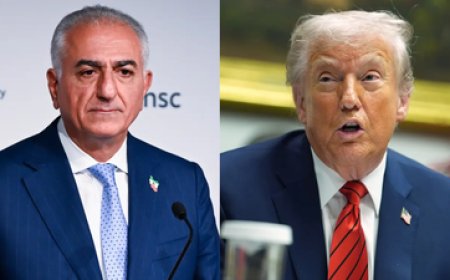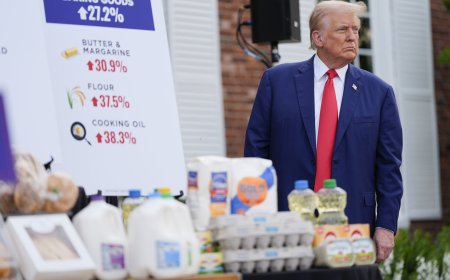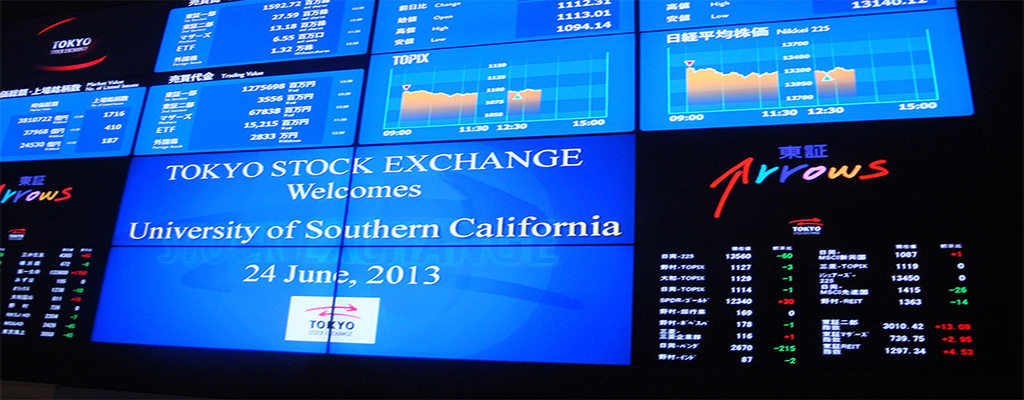Focus Shifts Back to Trade War

Canada's main stock index was subdued in choppy trading on Tuesday, as cautious investors moved on from the country's elections to focus on the potential economic impact of a global trade war triggered by U.S. President Donald Trump's tariffs.
The TSX Composite Index gained 10.18 points to pause for lunch Tuesday at 24,808.77
The Canadian dollar descended 0.10 at 72.20 cents U.S.
The market reaction was muted to Prime Minister Mark Carney-led Liberals securing a victory without an outright majority in Canada's parliamentary elections, which had centered on Trump's tariffs on its northern neighbor.
However, Carney, the first person to lead two G7 central banks, has the experience to earn immediate international credibility, experts say.
The Liberal leader had promised a tough approach to Washington's import tariffs and said Canada would need to spend billions to reduce its reliance on the U.S.
Meanwhile, investors globally are also awaiting more clarity on the state of U.S.-China trade negotiations.
Canada's auto parts suppliers may get a boost from reports that Trump's administration may alleviate some duties imposed on foreign parts in domestically manufactured cars.
On TSX, communication stocks were among the top gainers, with BCE Inc topping the index, with a rise of 28 cents to $30.41.
ON BAYSTREET
The TSX Venture Exchange erased 0.73 points to 652.45.
The 12 subgroups were evenly divided, as health-care moved up 0.9%, telecoms hiked 0.6%, and consumer discretionary stocks took on 0.4%.
The half-dozen laggards were weighed most by gold, down 1.4%, materials, off 0.6%, and energy, retreating 0.4%.
ON WALLSTREET
The S&P 500 was relatively unchanged on Tuesday as Wall Street awaits any progress on trade deal negotiations.
The Dow Jones Industrials popped 279.42 points to 40,507.01
The much-broader index recovered 18.43 points to 5,547.18.
The NASDAQ Composite strengthened 39.88 points to 17,406.01.
Stocks came under some pressure earlier in the session as Treasury Secretary Scott Bessent failed to detail further progress on trade deals in remarks from the White House. Bessent noted substantial talks with Japan and reiterated again a deal framework could be close with India. But Bessent had no further details on China and wouldn’t confirm if negotiations were even taking place with the country.
Shares of Amazon dropped Tuesday after White House press secretary Karoline Leavitt, standing beside Bessent, said that if a report was true that the e-commerce giant is planning to list tariff costs of goods on its site, that it would be considered a “hostile and political act.”
General Motors also declined after the automaker reported better-than-expected profit but said it was reassessing future guidance and suspending more share buybacks as it awaits clarity on the impact from the levies. Shares had risen earlier on reports that Trump was willing to make concessions on foreign-made parts used in domestic production.
GM’s decision follows a number of other companies that have announced they’re reconsidering their full-year forecasts in the wake of rising global trade tensions. Last week, American Airlines and Skechers withdrew their 2025 outlooks, with both companies citing economic uncertainty.
Investors are gearing up for a busy earnings week, with about one-third of S&P 500-listed firms slated to post results between Monday and Friday. Big Tech is of particular focus, with Meta Platforms and Microsoft expected on Wednesday and Apple and Amazon scheduled for Thursday.
Of the more than 36% of S&P 500 companies that have reported so far this season, about 73% have exceeded Wall Street expectations. That’s modestly below the five-year average of 77%.
Prices for the 10-year Treasury heightened, lowering yields to 4.18% from Monday’s 4.21%. Treasury prices and yields in opposite directions.
Oil prices lost $1.40 to $60.65 U.S. a barrel.
Prices for gold slid $22.00 to $3,325.70 U.S.













































